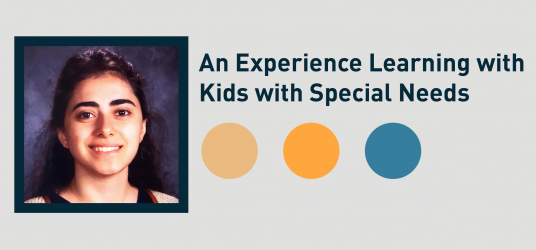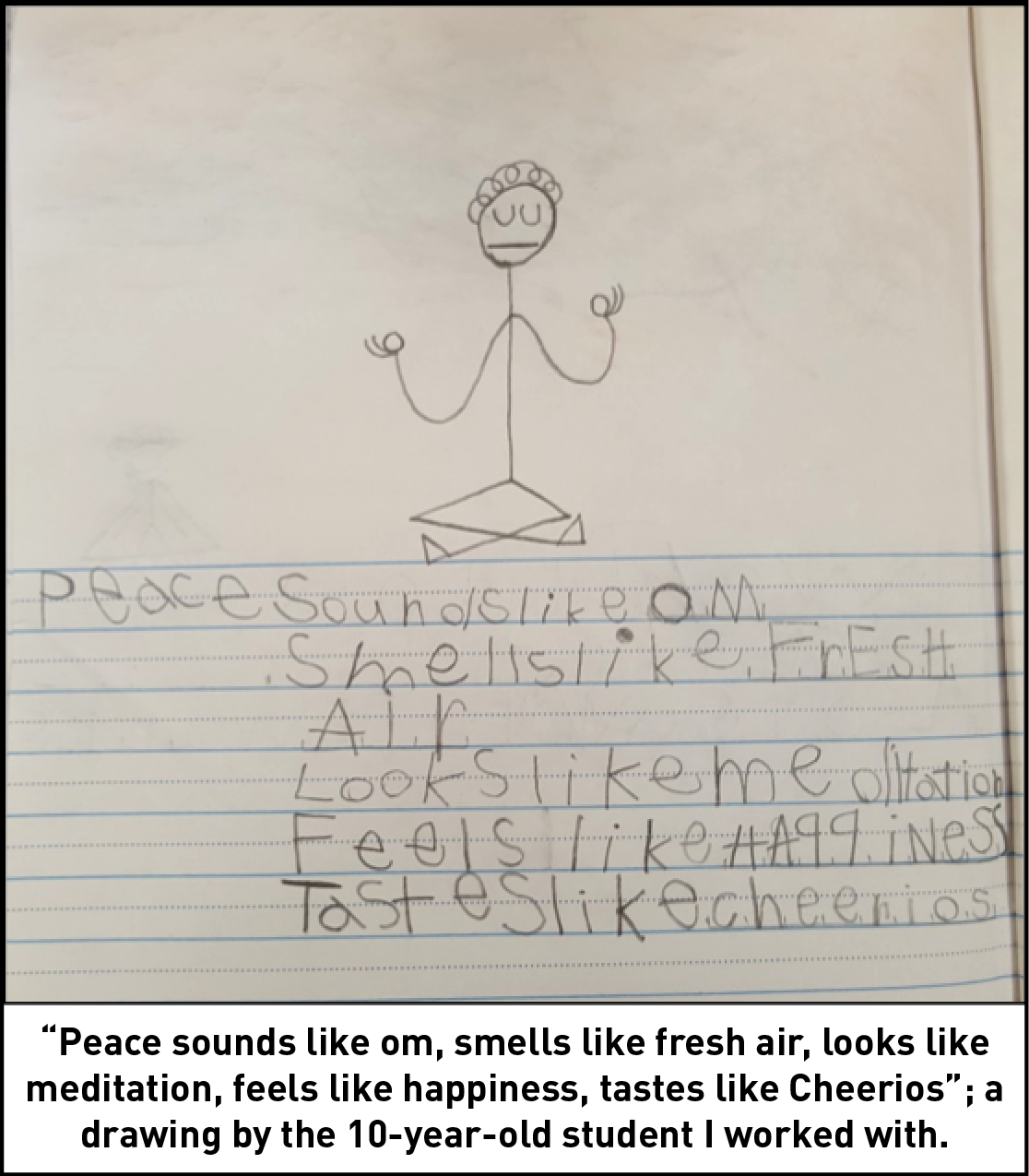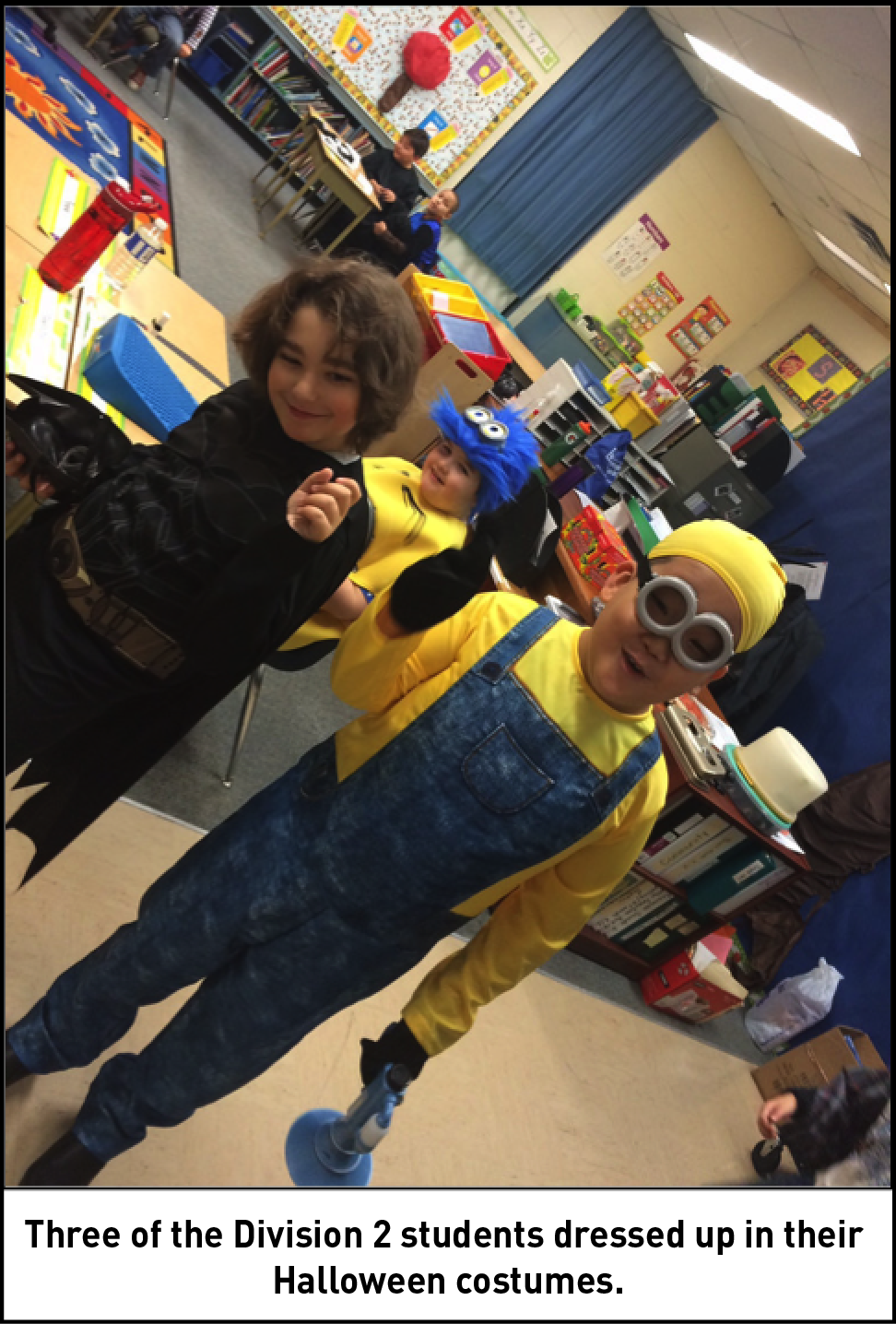
Responsibilities of SEAs include physical assistance (eating, using the washroom), behavioral management (reminding the students of the classroom rules and routines), development of social skills and cognitive functions (assisting the students in finding friends and working as a team, teaching them about self-regulation), and curriculum implementation (assisting the kids with their school work). In addition, we provide assistance and support for the teacher by organizing the classroom, as well as preparing demonstrations and visual aids for the students. We are also expected to provide supervision for the students during their recess and lunch times in different areas of the school, such as the playground and the hallways.

During this school year, I was assigned to assist in Division 2 (Grades 2-3) in a classroom of 11 children between the ages of 6 and 9. As a general SEA, I would provide assistance for all of the children as opposed to focusing on only one student. However, during the first couple weeks of the new school year, I connected well with a new student who was a low-functioning 7-year-old girl on the Autism spectrum, and was assigned to dedicate more time to the provision of one-on-one assistance for her. Since she was not completely verbal, communicating with her was quite challenging and a variety of visual aids were required. Despite the behavioral issues, such as biting and screaming at moments of discomfort, she was a very bright and lovely student in our classroom. My interactions with her were a valued learning experience in dealing with aggressive physical contact and practicing how to remain calm when they are having behavioural issues.

The student was eventually moved to another classroom, which was a better fit for her needsand I was assigned to another new student, a 10-year-old boy on the Autism spectrum also diagnosed with Attention Deficit Hyperactivity Disorder (ADHD) in addition to intellectual disability. This student had difficulty with accepting and following the classroom rules and routines in the beginning of the school year, mainly due to the unfamiliar environment. For instance, he used to sit at his desk during the carpet time and he rarely participated in the classroom activities. Making friends and socializing with other individuals was another difficulty he faced during the beginning of the year. Academically, he started with simple tasks such as tracing the alphabet letters and counting by twos, however, after working with this student, he is now capable of reading the level readers books, perfectly writing long sentences with the correct handwriting and has learned addition and subtraction in Mathematics.
The above-mentioned cases are examples that provide a general sense of what this job is like. However, as an SEA, I have gained much more experience through all the challenges and have made valuable accomplishments. Identifying the children’s needs and characteristics while approaching them relatively was one of the main challenges in the beginning of the year; yet, I overcame this challenge after the first few weeks. Another main challenge was staying calm and patient during the times in which the kids were experiencing behaviour escalations. For instance, some students make physical contact, such as biting and pushing, with SEAs, teachers and even their classmates during their behaviour outbursts. In such cases, it is very important to stay calm and manage that situation patiently in order to avoid tension and injury. Learning to deal with situations in which students refuse to follow rules or listen to instructions is also very important and requires lots of patience and practice.
 In addition to providing one-on-one assistance, SEAs are expected to attentively multitask in order to help more than one student at the same time. Due to the diverse range of disabilities among the students in our classroom, each student has different needs in comparison to others. Hence, we must adapt to each student’s needs and provide assistance accordingly. Some students learn better through visual aids and demonstrations, whereas others might be more comfortable with listening to explanations. Also, some students might learn more effectively when working in a team, as opposed to others who may learn better when working individually. Teamwork is another valuable skill that I practiced on a regular basis with activities such as participating in the children’s teamwork or group games, which facilitated the formation of a friendly connection between the SEAs and the kids.
In addition to providing one-on-one assistance, SEAs are expected to attentively multitask in order to help more than one student at the same time. Due to the diverse range of disabilities among the students in our classroom, each student has different needs in comparison to others. Hence, we must adapt to each student’s needs and provide assistance accordingly. Some students learn better through visual aids and demonstrations, whereas others might be more comfortable with listening to explanations. Also, some students might learn more effectively when working in a team, as opposed to others who may learn better when working individually. Teamwork is another valuable skill that I practiced on a regular basis with activities such as participating in the children’s teamwork or group games, which facilitated the formation of a friendly connection between the SEAs and the kids.
One of the most significant lessons I have learned through this experience is that responsiveness leads to noticeable change. I believe that listening to students and giving your heart to them by devoting your time and energy is extremely important and makes a great difference in their learning experience. Students function more or less effectively depending on the situation. For example, a student, especially one with special needs, who has witnessed or has been subjected to domestic violence is less likely to concentrate on school work or express expected behaviours. Therefore, in such events, it is very important to first seek the reason behind their misbehaviour, and secondly, to assure that the student is in a healthy emotional and mental state. In addition, taking into consideration the student’s perspective of the situation and thinking about how I would possibly react put in a similar position has helped me in dealing with these types of situations.
This co-op placement has been a unique and educative experience for me. Being an SEA has helped me improve characteristics such as attentiveness, acceptance and patience in myself. In addition, I, along with the kids, have practiced some of the main cognitive functions, such as self-regulation and perspective taking. Personally, I have enjoyed every moment of this job and I definitely recommend this position to any other interested applicants.













